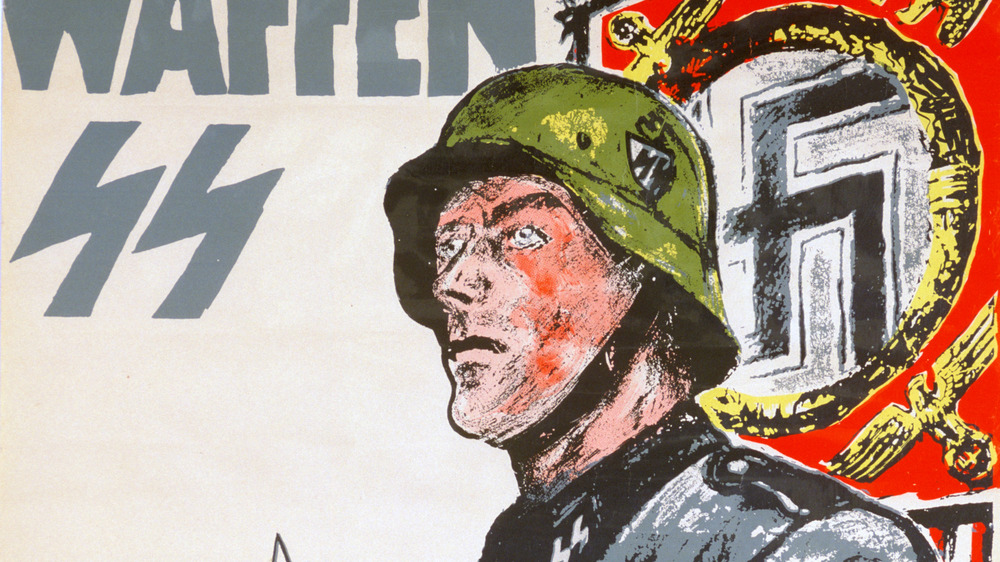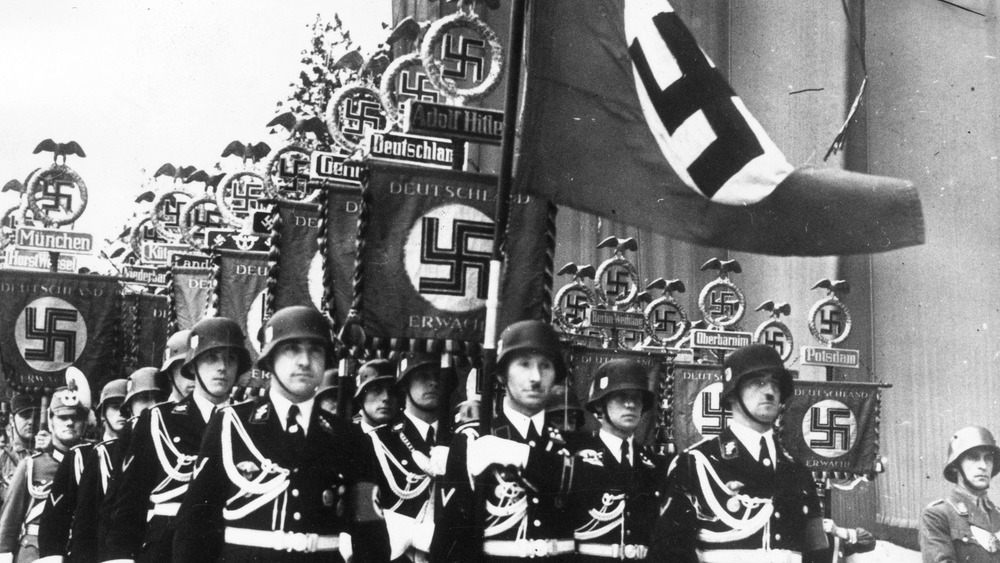How An Affair Led To The 2007 Investigation Of A Nazi Officer
In 2007, a man most likely responsible for the deaths of thousands of people read something in a recently published memoir that he claimed had "besmirched" his "honor." That man was Erich Steidtmann, a 92-year-old former member of the Nazi paramilitary organization known as the SS. It wasn't that he was offended by allegations of his role in one of the worst pogroms in human history. No, what inflamed the ire of Steidtmann was that the woman who wrote the book claimed to have had an affair with him. In her autobiography An Ordinary Life, author Lisl Urban claimed that she had several sexual relationships with Nazi officers, one of whom was Erick Steidtmann. Even though she only identified him as Eick, Steidtman knew who she was talking about.
Of course, no upstanding Nazi could suffer such licentious allegations, and Steidtmann decided to take legal action. But the move would end up backfiring on him. The Guardian reported in 2007 that investigations inspired by the lawsuit he brought against Urban and her publisher would lead to his being outed as a key player in the SS massacres of thousands of people in the Jewish Ghetto of Warsaw, Poland. "To claim this of a captain of the uniformed police is such a reprehensible act that even at 92 I have a right to protect my reputation," said Steidtmann, a man who obviously has a perverted concept of what honor is.
The affair that 'besmirched' the 'honor' of Nazi officer Erick Steidtmann
Urban worked as a secretary for the Gestapo — the Nazi secret police — in Prague, which she called a "hotbed of frivolous sexual encounters." In 1942, while World War II raged, they were passing the time rowing, dining in fancy restaurants, and rolling around in bed. Urban became pregnant and wanted to marry him, but Steidtmann wasn't feeling it. He ditched her for a Polish woman and he wanted Urban to have an abortion — another claim that his so-called honor just couldn't brook. According to The Irish Times, his libel suit was thrown out of court, but the investigation it led to would reveal details about his Nazi past.
The publisher of Urban's book said that in researching for its defense, it found evidence of Steidtmann's membership in the SS as of 1933. The Nazi initially denied the allegation, but after the defense provided documentation connecting his name and date of birth to his SS number, he admitted it was true. Then, in true fascist fashion, despite being so proud of his reputation, he attempted to weasel out of the atrocities he committed. He admitted to being posted to the Warsaw Ghetto in 1942, where he was a captain in the police force tasked with guarding the wall erected around its perimeter to keep Jews inside, but said he was relocated before the massacres began in 1943. This was somehow meant to be used in his defense.
Nazi officer Erick Steidtmann died before he could be brought to justice
Urban's publisher, Joachim Jahns, was intrigued by a statement in Steidtmann's defense, in which he said that he was "involved in taking care of the uprising of 400 German deserters" in the Warsaw Ghetto. Jahns found no record of that event, but posited that he could have been referring to an uprising in April and May of 1943 when Jewish residents disguised themselves as Nazi officers. He also found evidence that Steidtmann was in Warsaw at this time, although he'd claimed to have been relocated in March. "I found a picture that clearly shows Mr. Steidtmann and others during the visit of leading SS officer Friedrich Wilhelm Krüger to the ghetto, a visit which other sources date as May 2nd, 1943," said Jahns. Steidtmann's alibi wasn't much better than the truth. He claimed to have been leading a battalion in Lublin, Poland, that was responsible for the deaths of as many as 30,000 Jews.
The case against him appeared to be strong, and prosecutors hoped to finally bring the Nazi war criminal to justice. However, as The New York Times reported in July 2010, Steidtmann died before that could be accomplished. Nazi war crimes researcher Efraim Zuroff highlighted the irony of him bringing attention to his SS past with the lawsuit against Urban, and said the case brought hope "that we are still able to bring Nazi war criminals to justice after so many years."


